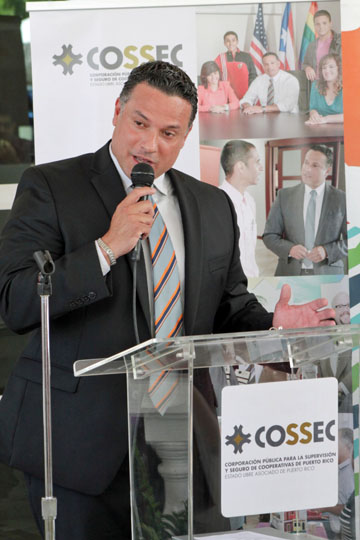Co-op movement forming ties with Cuban counterparts

The Corporation for the Supervision and Insurance of Puerto Rico Cooperatives, known as COSSEC in Spanish, is moving forward in striking up talks with Cuban counterparts, to ultimately set off diplomatic relations between both islands, and other Caribbean jurisdictions.
As part of that strategy, COSSEC President Daniel Rodríguez-Collazo is participating in the International Convention on Social Cooperative Economy and Sustainable Development, a Latin American gathering that this year focuses on the opening of the communist island nation to the United States.
Collazo-Rodríguez said the agenda aims to “develop the cooperative movement in Puerto Rico and position ourselves among the first to establish business relationships with the sister island, given the potential opening of this important market after the easing of relations with the U.S. government.”
“Puerto Rico’s delegation in Cuba has already started working, engaging in important meetings directed toward a possible collaborative agreement and exchange with the Cuban government and leaders of the cooperative movement in Cuba,” he said.
“We’re in talks with government, academia and the cooperative movement to analyze the processes of governance and management of cooperatives in both jurisdictions,” said Rodríguez-Collazo, adding the discussions have enabled COSSEC to get a feel for the co-op economy in Cuba, as well as its problems and challenges.
The COSSEC chief said other countries with whom there have been talks as well are: El Salvador, Costa Rica, Dominican Republic, Bolivia, Chile, Colombia, Ecuador, Guatemala, Mexico and Nicaragua, among others.
“Given the economic crisis at international level, Cuba’s neighboring countries are establishing negotiations with the island because of the economic potential it represents,” he said. “This trade mission is a direct invitation of integration, as there is a shared commitment to developing collaborations and agreements that strengthen the cooperative sector in both jurisdictions.”
A recent study revealed that there are 498 non-agricultural worker cooperatives in the Cuban economy. Of those, 384 are proposed conversions of state enterprises, and 114 of them are proposals from private business groups.
Of all accredited cooperatives, 257 are currently operational. Of those, 43 percent are active in the field of gastronomy, 14 percent in the construction sector and 6.5 percent in personal and technical services.
The Cuban structure favors the development or business relationships between private sector cooperatives, giving them tax breaks, discounts on inputs provided by the state, priority in leasing state-owned assets, and access to soft loans from the state bank. Rodriguez-Collazo said this is specifically where he anticipates proactive and collaborative work between the two jurisdictions.












